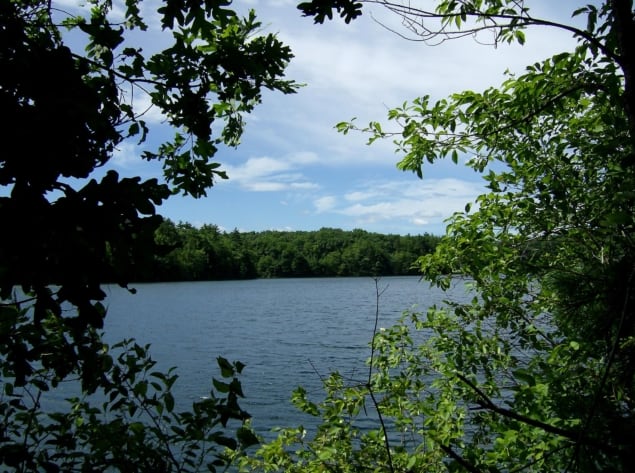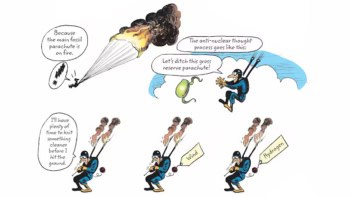
Henry David Thoreau, author of the 1854 memoir Walden, or Life in the Woods, did more than just observe the oaks, the aspens, the “golden-rods, pinweeds and graceful wild grasses”; he left precise writer’s notes on the natural world he found during his wilful exile in the Massachusetts wilderness.
And thanks to these, US researchers now know that as the world warms, the native ecosystem that Thoreau observed and recorded is out of step.
At the close of winter, the trees now leaf at least two weeks earlier. But the wildflowers that depend on their moment in the sun for a head start now form leaves only one week earlier.
Researchers from Tennessee, Massachusetts, Maine and New York State report in the journal Ecology Letters that they combined observations around Walden in 1852 with a sequence of observations made in 37 separate years up to 2018, and with separate field experiments in a Pennsylvania forest, to conclude that wildflowers could not keep pace
“Combining our work from Pittsburgh with Thoreau’s data revealed an overlooked yet critical implication of how our changing climate is affecting native wildflowers beloved by so many people,” said Mason Heberling, a botanist at the Carnegie Museum of Natural History in Pittsburgh, who led the research.
Novel science
The Oxford English Dictionary cites Thoreau as an authority for words and meanings more than 600 times, but not for a new science. But in effect, and without intending it, Thoreau has become one of the giants of the science of phenology, a word not recorded in use until 1884.
Phenology is the study of when natural events happen: when buds burst, flowers bloom, birds nest, insects pupate, fruit falls and leaves drop.
Thoreau, first to use the imagery of those who march to a different beat (he wrote: “If a man does not keep pace with his companions, perhaps it is because he hears a different drummer”), has already been cited as a phenological authority.
More than five years ago scientists used his nature notes to confirm that woody plants around Walden Pond were leafing up to 18 days earlier, thanks to climate change driven by human use of fossil fuels that enrich the levels of atmospheric carbon dioxide and warm the world. Temperatures on average around Concord, Massachusetts have risen by around 3 °C since Thoreau vacated his cabin at nearby Walden.
If spring happens earlier for the trees of the canopy than it does for the shrubs of the understorey, then the wildflowers have less time for photosynthesis and are placed at a disadvantage in the competition for growth.
The evidence seems to suggest that climate change could already be limiting wildflower abundance: if fewer blooms ripen, there will be less seed for following years.
The asynchrony of leaf-out that could be changing the nature of Thoreau’s woods is likely to get more pronounced: by 2080, the north-eastern US temperatures could have risen another 2.5 to 4.5 °C.
It was Thoreau who memorably observed in one of his essays that “The mass of men lead lives of quiet desperation.” It could be even more desperate for his wildflowers.
- This article first appeared at Climate News Network


